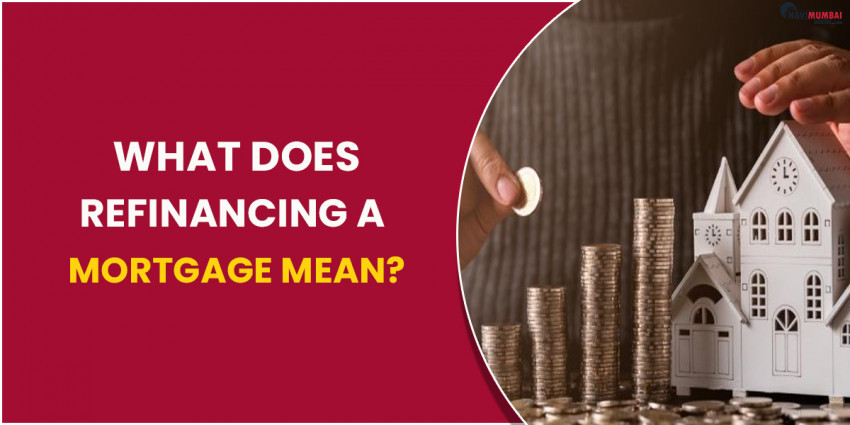
A house loan refinance is obtaining a new mortgage from a specific lender to pay off an earlier mortgage. Shifting a house loan, also known as refinancing, is done primarily to benefit from a lower interest rate and to gain an increase in the principal mortgage. There are countless other reasons, in addition to these two, for taking on new debt to pay off old debt. Combining the loan portfolio is one of them, as is the poor customer service provided by the current lender. Refinancing your home loan is possible for a number of reasons. You gain from cheaper interest rates and more adaptable repayment terms. However, it's vital to fully understand the process before weighing the advantages and disadvantages of refinancing for your specific situation.
Consider a loan in rupees as an example to better understand refinancing. Interest on 50 lakhs at an annual rate of 8% for 20 years will be Rs. 50.37 lakh. Consider refinancing this mortgage at a 7% interest rate. The interest would then be lowered to Rs 43.03 lakh, saving around Rs 7 lakh that may be used for investments, securities, or the accomplishment of other objectives like travel, vehicle modifications, or higher education.
What Is a Refinance and When Should You Do It for Your Loan?
A new loan is obtained to replace the old one when customers refinance their mortgage. The terms of the new loan may be different, such as going from a 30-year to a shorter term, like 15, or from an adjustable-rate mortgage to one with a fixed rate, but the modification that occurs most frequently is a lower interest rate. If you need money for whatever reason, you can refinance to lower your minimum payments, pay off your loan sooner, pay less interest overall, and access the equity in your home.
Different Benefits of Refinancing Include:
You could pay back your loan sooner
In a short period of time, your mortgage could be refinanced into a new mortgage. If you decrease the term of your loan, you'll increase your home equity and pay it off faster.
You could spend less throughout the course of the loan.
Shortening the loan's repayment period will cut down on the time you spend making payments, which will lower the overall amount of interest you pay. What occurs if the loan's duration is not shortened? However, you might end up paying less overall for your mortgage.
For several reasons, including lowering mortgage payments and getting rid of private mortgage insurance, refinancing can be a prudent financial move. Every borrower has different goals and a varied financial circumstance, so there isn't an one refinancing solution that works for everyone. Among the several refinancing options are:
• Refinancing with Term and Rate
• Cash-out refinancing
• Refinance with money
• Consolidate refinancing
• No fee refinancing
• A speedy refinance
• Reverse mortgage
When to Refinance Your Loan, Correctly
The timing of the refinancing will be considerably impacted by your loan installments. Here are a few a situation in which refinancing is sensible.
When There Is Still Time on Your Loan
Refinancing earlier in the loan term, typically in the first half, makes more sense. During this time, the majority of your EMI payments will be interest. Savings will be realized from a debt that has been refinanced at a lower interest rate.
When you’re Credit Rates Are Reduced
Mortgage interest is usually the largest expense of home ownership. Shorter loan terms, cheaper monthly payments, and considerable long-term savings might all be achieved with a house loan with an interest rate that is at least 50 basis points lower.
When Your Income and Credit Score Raised
If your credit score increases (to 750 or above) and your income is constant, you can obtain the best loan offers.
Source from: navimumbaihouses





